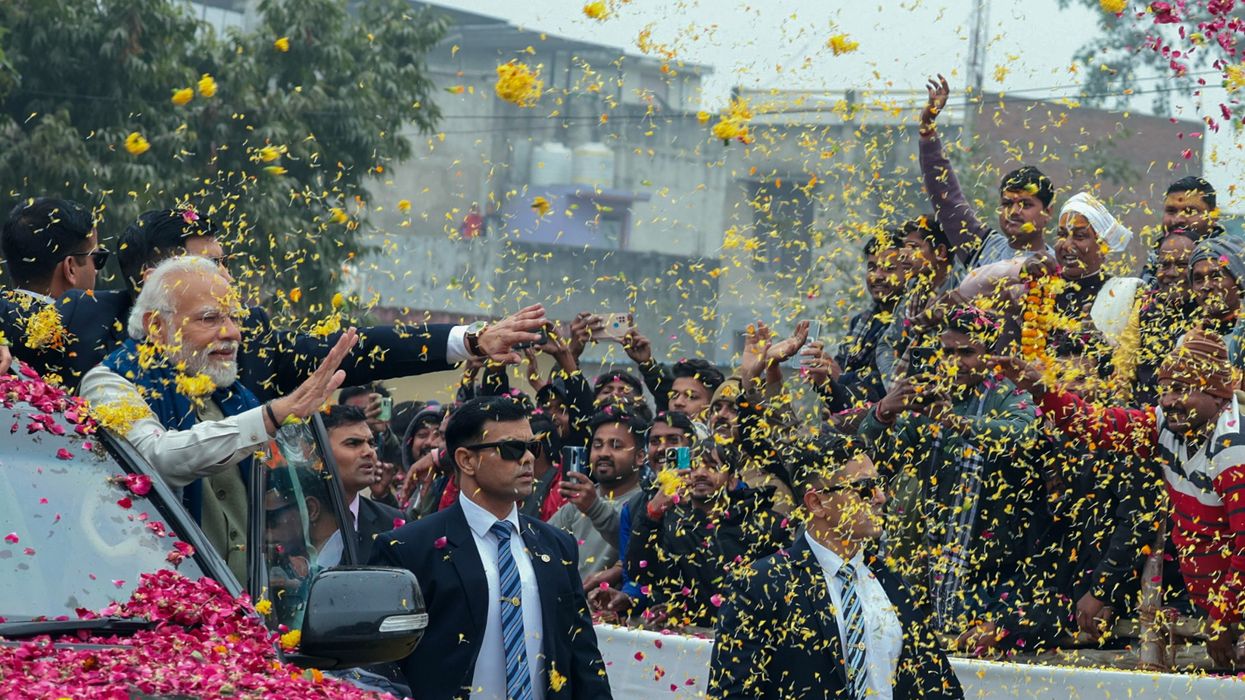INDIAN prime minister Narendra Modi visited a holy town last week to open fresh transport links catering to pilgrims for a new temple steeped in a history of sectarian violence.
Ayodhya's new shrine to Lord Ram will be formally unveiled this month on the grounds where a centuries-old mosque once stood, before it was torn down by Hindu zealots more than three decades ago.
Millions are expected to visit the temple each year and its construction was a longstanding pledge of Modi's ruling party.
"Today, if any country in the world today wants to reach great heights, it has to take care of its legacy," Modi told an audience of thousands at a city rally.
"This is the new India that will both preserve its culture and focus on economic growth."
Huge crowds turned out to witness Modi's procession through the city, formally to open a new airport and upgraded road and rail services.
But his visit also had the air of a campaign stop, coming just months before national elections he is widely expected to win.
The Ayodhya temple, standing 50 metres (164 feet) in height and built at an estimated cost of $240 million, has helped buttress his image as a custodian of India's majority faith ahead of the vote.
Such is the excitement around the project that Modi appealed to Hindus to refrain from visiting the site on the day he is slated to preside over its inauguration next month.
"It won't be possible for everyone to get here, and for this place to handle the numbers on the day," he told the crowd.
"I appeal to everyone to celebrate it at your home and come to Ayodhya later."
Hindus believe that Ram was born in Ayodhya around 7,000 years ago but that a mosque was built on top of his birthplace during the rule of the Mughal Empire in the 16th century.
The mosque was torn down by a mob in 1992 in a campaign backed by Modi's party, triggering riots across the country that killed 2,000 people, mostly Muslims.
Its destruction was a hammer blow to the foundations of India's secular political order, paving the way for the rise of Hindu nationalism to become the country's dominant political force.
Muslim residents of Ayodhya, remembering the deadly riots that accompanied the demolition, have been wary of its renewed atmosphere of religious fervour.
But for many Hindus, the project is a means of restoring the city to the glory of its depiction in ancient Hindu texts.
(AFP)





